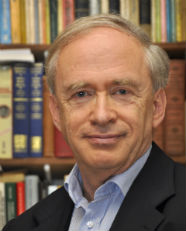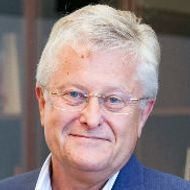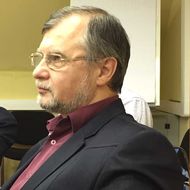- A
- A
- A
- АБB
- АБB
- АБB
- А
- А
- А
- А
- А
- Национальный исследовательский университет «Высшая школа экономики»
- Факультет социальных наук
- Департамент политической науки
- Мероприятия
- Майкл Фриден: «Изучение актуальной политической мысли: альтернативная политическая теория»
Адрес: 103070, Москва, Кривоколенный пер., д.3.
Телефоны:
8 (495) 772-95-90*22833
8 (495) 772-95-90*22448
Факс: 8 (495) 772-95-90*12556
E-mail: iorlov@hse.ru
 Мировой порядок - время перемен
Мировой порядок - время перемен
Под редакцией: А. И. Соловьев, О. В. Гаман-Голутвина
М.: Аспект Пресс, 2019.
Гаман-Голутвина О. В., Сморгунов Л. В., Тимофеева Л. Н.
Политическая наука. 2019. № 1. С. 253-267.
In bk.: Oxford Research Encyclopedia of Politics (Living Edition). Oxford University Press. P. 1-20.
Sorokina A., Maximenkova M., Kasamara V.
Political Science. PS. Высшая школа экономики, 2019. No. 71.

Майкл Фриден: «Изучение актуальной политической мысли: альтернативная политическая теория»
Приглашаем вас на Научный семинар департамента политической науки, который состоится в понедельник, 17 сентября, в 18:10 по адресу: ул. Мясницкая, 20, ауд. 101.
С докладом «Изучение актуальной политической мысли: альтернативная политическая теория» («Studying actual political thought: an alternative political theory») выступит проф. Майкл Фриден.
Рабочий язык семинара – английский. Тезисы доклада прилагаются.
Коллегам, не являющимся сотрудниками Вышки, для участия в семинаре необходимо заказать пропуск и иметь при себе паспорт. По вопросам, связанным с организацией семинара, можно обращаться к Никите Юрьевичу Савину (nikita.savin@hse.ru) и Ольге Юрьевне Малиновой (omalinova@hse.ru).
Если вы не можете присутствовать, видеотрансляцию можно посмотреть по одной из ссылок:
— http://92.242.59.143/live2/ApplePlayer.html — годится для iPad, iPod, iPhone;
— http://92.242.59.143/live2/SmoothStreamingPlayer.html — для компьютера и ноутбука.
Тезисы:
Between the respected branches of political philosophy and the history of political thought, a pronounced gap exists revealing the study of actual political thinking in a society, the normal and the typical as well as the exceptional, the professional as well as the everyday. Political philosophers test ideas and arguments under laboratory conditions, aiming at clarifications or at improving the quality of debate and understanding. In offering normative guidelines for a good society, they frequently attain a degree of abstraction and quasi-universalism that puts them out of the reach of concrete political practices that attract the interest of social scientists. On the other hand, too many historians of political thought focus on exceptional individuals and texts, while overlooking the many vernacular patterns of political thinking that all societies produce at various levels of articulation. We are now, however, in the midst of a transformative ‘political turn’ that refocuses on core features of thinking politically, and distinguishes them from many of the concerns that preoccupy philosophers. Among others, philosophers rarely distinguish between studying philosophy and practising it; whereas in the domain of political thinking and political ideologies there is a fundamental difference between participating in political debate and expressing ideological preferences, in contrast to interpreting and exploring instances, characteristics, and patterns of political thinking.
The discipline of political philosophy has made vital and indispensable contributions to ethical investigation and experimentation, analytical and logical fine-tuning, and the promotion of values thought by many to be crucially desirable, such as justice, democracy and legitimacy. But at the same time, in too many universities, the space left to other genres and approaches has been constricted because political philosophy has crowded out other significant ways of theorizing about political thinking, often in a manner ill-suited to the study of politics and the political, and often in a non-pluralist manner.
A general misconception exists in the world of scholarship that politics is either about power, or consensus, or conflict, or authority, or legitimacy, or agonism, or oppression, or violence. But it is not about any one thing. It is about all of those, and other things too, but always in different mixes and weightings. I have contended that there are certain human practices, in evidence across societies and cultures, that are specifically practices of political thinking. They are universal, although they appear in very different forms, in local disguises and variants. They include (1) introducing finality into language and argumentation (irrespective of whether they relate narrowly to formal political institutions or not); (2) the ranking of collective priorities; (3) mobilizing support for collectivities or withholdingit; (4) the pursuit of social order or disorder; (5) constructing plans and visions for a shared social future; (6) using the power invariably residing in language in attempts to persuade, through reason, emotions, rhetoric and threats. All those practices are empirically observable and ubiquitous forms of human thinking, and they require investigation if we understand our role as scholars not just as recommending and prescribing, but as understanding and decoding, the many languages of the political, in the Weberian sense of Verstehen.
Advocacy versus interpretation, the role of emotion, the discontinuities and ruptures of political thinking, the input of conceptual history, and the unsteady development of a new political realism, have lately become themes of growing salience in analyzing the political, and they will play an increasingly important role in broadening the range of the discipline, alongside the highly prestigious but more conventional approaches that have hitherto dominated it.
 Майкл Фриден – известный британский специалист по политической теории, ведущий современный теоретик идеологии, автор морфологического подхода к анализу идеологий, крупнейший специалист по истории европейского либерализма. Почетный профессор Оксфордского университета (Мэнсфилд-колледж), в настоящий момент – также профессор-исследователь Департамента политики и международных отношений в Школе восточных и африканских исследований в Лондонском университете. Один из основателей и главный редактор «Journal of Political Ideologies».
Майкл Фриден – известный британский специалист по политической теории, ведущий современный теоретик идеологии, автор морфологического подхода к анализу идеологий, крупнейший специалист по истории европейского либерализма. Почетный профессор Оксфордского университета (Мэнсфилд-колледж), в настоящий момент – также профессор-исследователь Департамента политики и международных отношений в Школе восточных и африканских исследований в Лондонском университете. Один из основателей и главный редактор «Journal of Political Ideologies».
- О ВЫШКЕ
- Цифры и факты
- Руководство и структура
- Устойчивое развитие в НИУ ВШЭ
- Преподаватели и сотрудники
- Корпуса и общежития
- Закупки
- Обращения граждан в НИУ ВШЭ
- Фонд целевого капитала
- Противодействие коррупции
- Сведения о доходах, расходах, об имуществе и обязательствах имущественного характера
- Сведения об образовательной организации
- Людям с ограниченными возможностями здоровья
- Единая платежная страница
- Работа в Вышке
- ОБРАЗОВАНИЕ
- Лицей
- Довузовская подготовка
- Олимпиады
- Прием в бакалавриат
- Вышка+
- Прием в магистратуру
- Аспирантура
- Дополнительное образование
- Центр развития карьеры
- Бизнес-инкубатор ВШЭ
- Образовательные партнерства
- Обратная связь и взаимодействие с получателями услуг
-
http://www.minobrnauki.gov.ru/
Министерство науки и высшего образования РФ
-
https://edu.gov.ru/
Министерство просвещения РФ
-
http://www.edu.ru
Федеральный портал «Российское образование»
-
https://elearning.hse.ru/mooc
Массовые открытые онлайн-курсы
- © НИУ ВШЭ 1993–2025 Адреса и контакты Условия использования материалов Политика конфиденциальности Карта сайта
- Редактору

